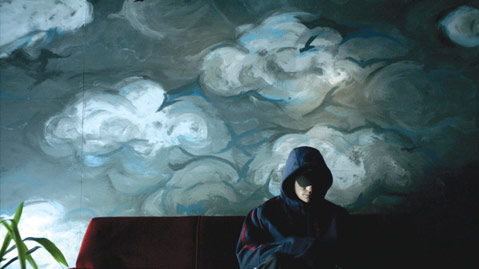The Imposter
A documentary film written and directed by Bart Layton.

Slippery truths and accepted artifice line the way in this strangely compelling, disbelief-suspending film. Call it a “docu-mystery.” Central to the mystery component are the very facts of the narrative maze, involving a 13-year-old gone missing in San Antonio, Texas, in the early ’90s, a disturbed yet cunning con artist in Spain, and the intertwining of the two. Questions arise as much as answers: Was there murder involved? A family cover-up? And how is it possible that the French habitual “imposter” Frédéric Bourdin can so coolly and remorselessly retell his sordid tale? The peculiarities and implicit issues surrounding this shrewdly paced and crafted film, of course, are what propel it forward and keep our gaze and attention so focused.
We may recognize the general substance and structure of the slo-mo cliffhanger storytelling style from Hard Copy and other tabloidy true-crime television shows that latch onto a particularly bizarre or seedy tale of woe and misdeeds. Testimonies by talking heads, from victimized family members to investigators, official and otherwise, are interspersed by reenactments by actors vaguely resembling those involved, and we’re presumably drawn into the feel and seedy scenery of the crime. Usually, the television model lures us in only to leave a filmy mental muck as we realize we’ve wasted precious time wallowing in pulp.
But what director Bart Layton — in his first film after many TV projects — brings to the larger story canvas of this documentary is a more cinematic spin on a pulpy small-screen tradition. It helps, too, that artful filmic touches are sparingly applied, from a recurring, half-ironic leitmotif shot of the Speedy Stop to signify Texan life to Anne Nikitin’s affectingly dark ambient musical score.
Sometimes, Layton wriggles into the realm of Errol Morris’s blissfully eccentric, art-informed documentary work, without ever quite leaving the realm of journalistic objectivity. Shots of an obsessed private eye named Charlie Parker literally digging and rooting around for evidence becomes a clever symbol of the oddity and fluidity of a tale that sometimes seems too strange and tangled for fiction. Suffice it to say, The Imposter grabs at the senses and lingers, a bit uncomfortably, in the memory.



